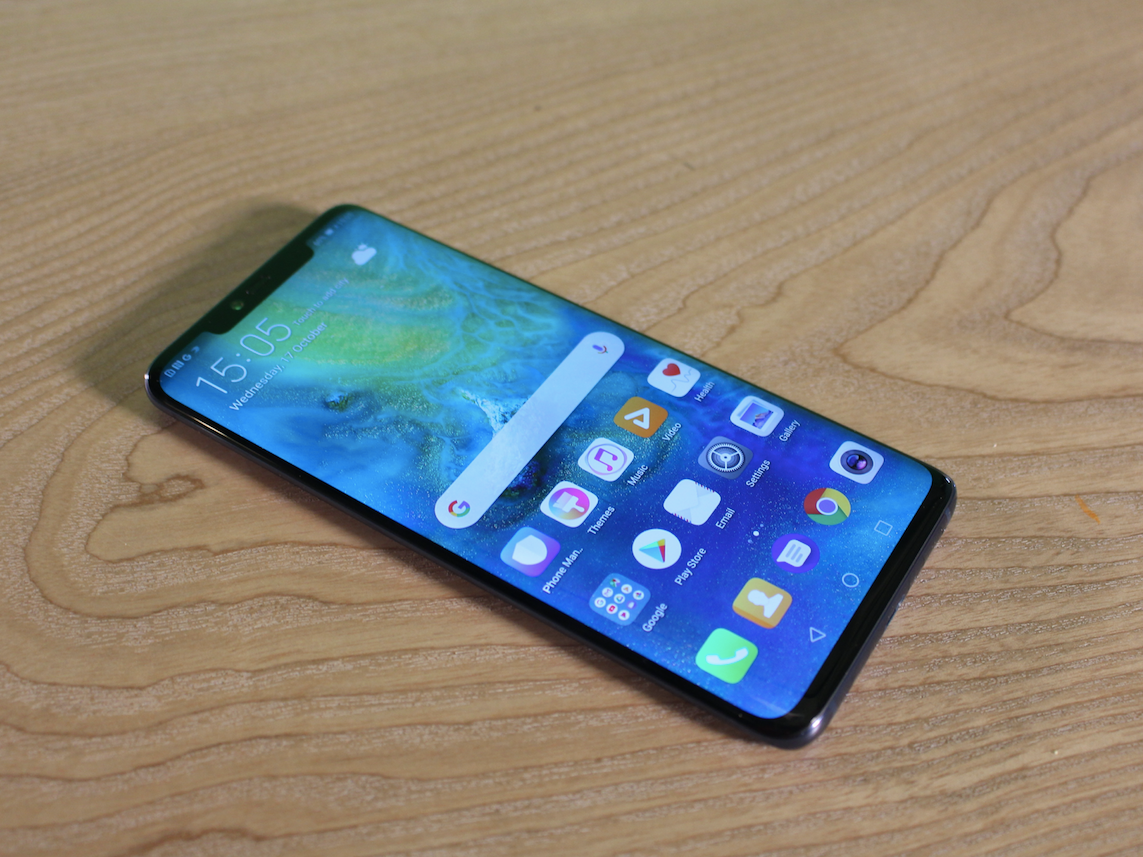Huawei’s Mate 20 Pro is here. It’s a high-end flagship phone to go up against the Google Pixel 3 XL and the iPhone XS Max, with a price tag of €1049 (priced at £899 in the UK and equivalent to $1,220).
The Chinese phone maker is a huge deal, even if it doesn’t quite boast the brand recognition of Samsung or Apple. It is the second biggest smartphone maker in the world, behind Samsung, and has put major spend into crafting beautiful flagship devices.
You might already be familiar with Huawei’s P series, an impressive range of Android phones updated earlier this year. Now there’s the year-end Mate 20 and Mate 20 Pro.
Here are the coolest new features on the Mate 20 Pro:
- Qi-compatible phone-to-phone wireless charging which, in plain English, means you could wirelessly charge an iPhone or Samsung Galaxy phone by placing it against a Mate 20 Pro.
- Huawei lets you unlock your phone with your face through a facial recognition feature, similar to an iPhone.
- There's also on-screen fingerprint recognition, which works smoothly on a first run.
- A Leica-powered triple-lens camera intelligently tracks the subject of photos, has real-time video filters, and lets you take beautiful ultra-wide and close-up shots.
- It launches with Android 9 Pie out of the box.
- It's than the iPhone XS and iPhone XS Max.
Business Insider spent a few days with the Mate 20 Pro. Here's what we took away from a first look.
The Mate 20 Pro is a jumbo phone with a curved, OLED, 6.39-inch screen.
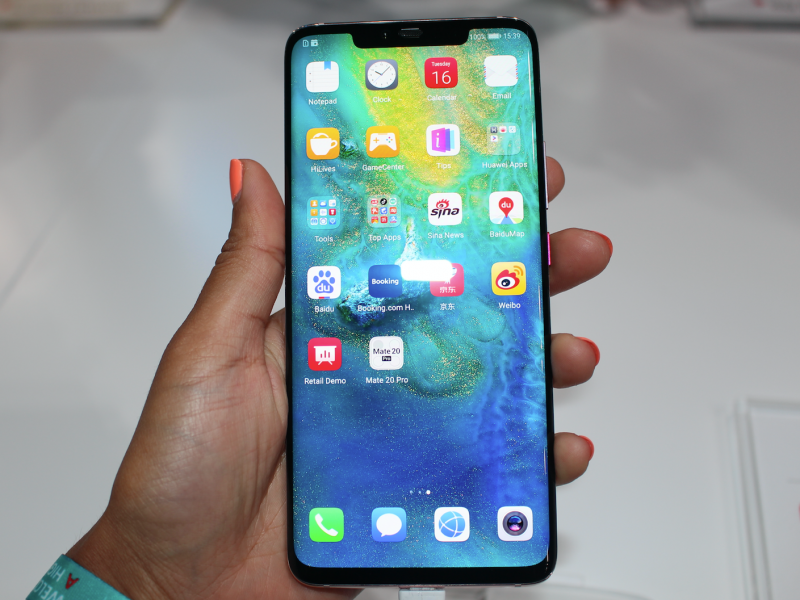
We're firmly into phablet territory with this supersized phone. It isn't even the biggest of the updated range: Huawei, as its "one last thing," unexpectedly announced the Huawei Mate 20 X, a shameless copycat of the iPhone X branding and basically a tablet at 7.2 inches.
To someone who owns a comparatively modest 5.8-inch iPhone X (and happens to have an injured hand tendon), the size felt a little unwieldy. But if you spend your commutes glued to Netflix, the size, the screen's curved edges, and popping colours make this an excellent device.
Yes, there's a notch, but it's optional.
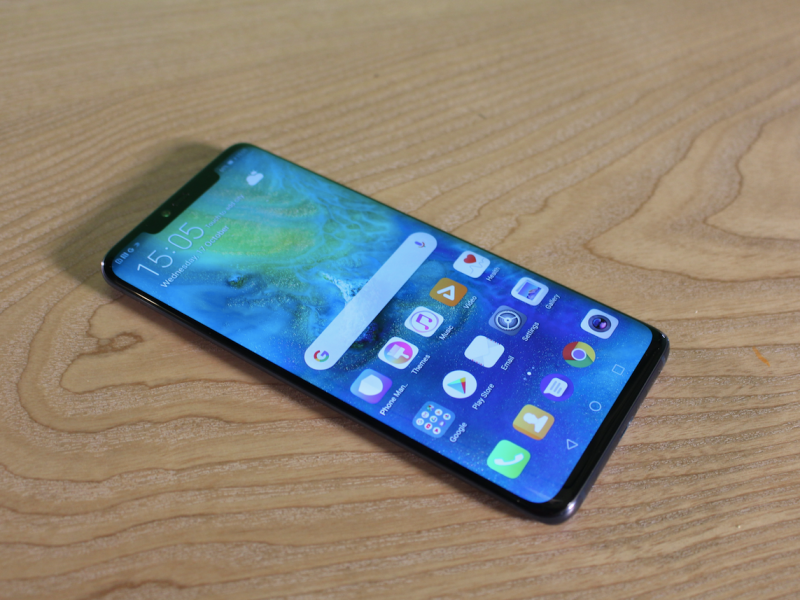
2018 is the year of the notch. Screens without big black borders are becoming a common design feature on flagship phones, but phone makers haven't quite worked out how to achieve a full-screen display and house a front-facing camera. Hence the notch.
For anyone especially displeased by the notch on the Mate 20 Pro, Huawei lets you switch it off. That feature keeps the bezel running evenly across the top of the phone.
An advanced chipset and interface update means the phone boasts impressive speed boosts.
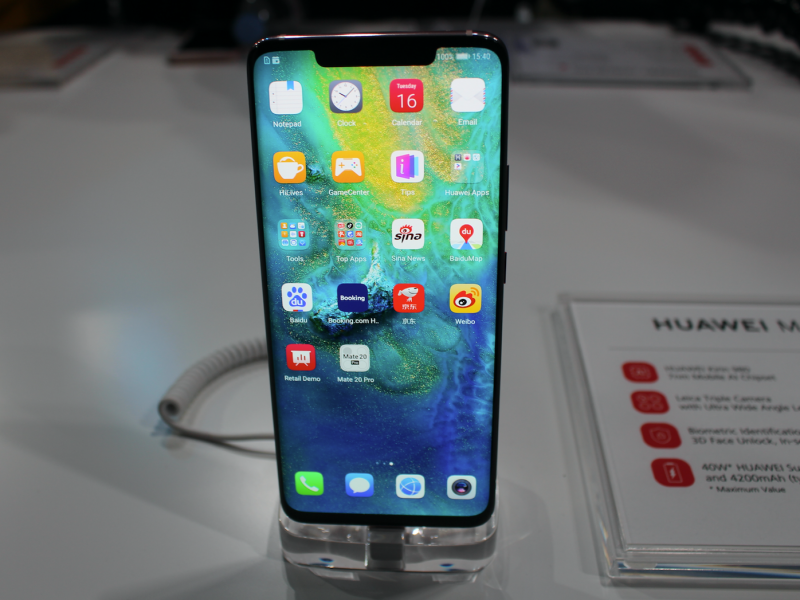
Huawei is promising super speedy performance, thanks to its Kirin 980 chipset, which also packs a neural processing unit (NPU) for clever artificial intelligence features.
There's also an upgrade to EMUI 9, Huawei's homegrown interface. The company said users should be able to open apps much faster and navigate around the phone quicker.
There's on-screen fingerprint recognition...
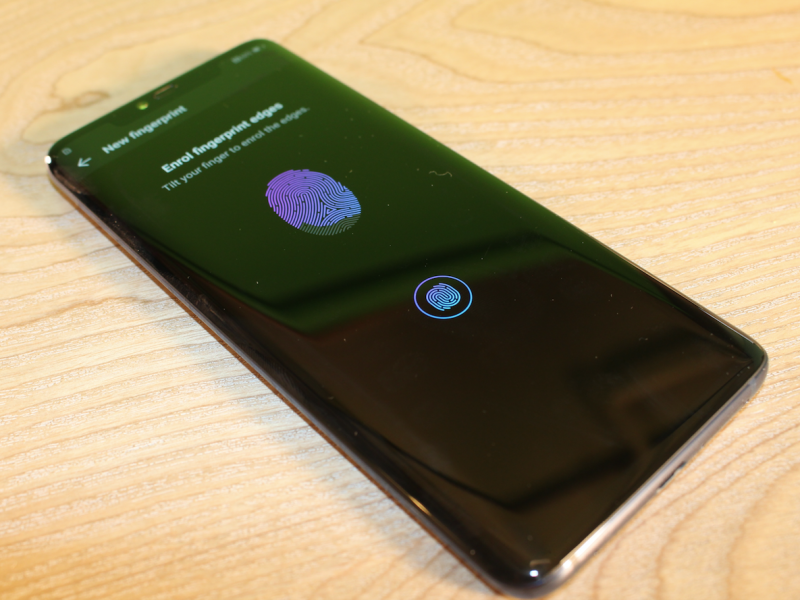
This isn't Huawei's first phone with on-screen fingerprint recognition, but it's one of the few major flagships this year with the feature. It's a step forward from earlier Huawei models, which housed a fingerprint sensor on the back. Android fans can be pleased that iPhones still haven't managed under-screen fingerprint recognition.
...and it works really well.
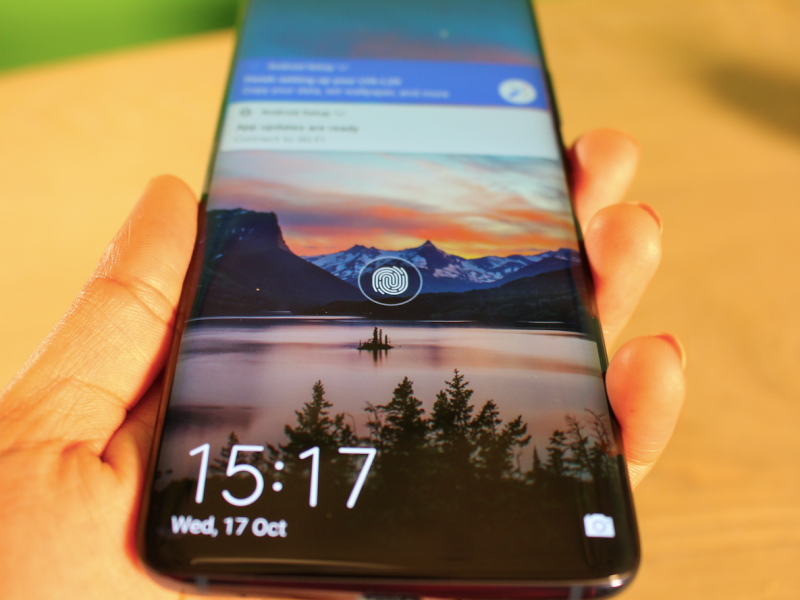
Anyone who wants to use the feature needs to set up both fingerprint recognition and a PIN code, which takes a couple of minutes. We ran into very few problems with fingerprint recognition and found it generally works pretty smoothly.
There's also a facial recognition feature that lets you unlock your device smoothly using just your face.
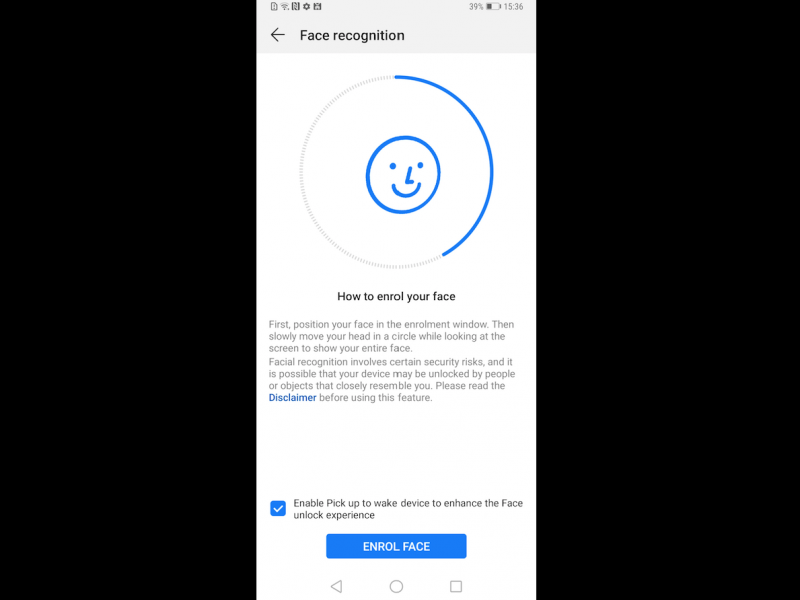
One slightly troubling caveat Huawei gives during setup: Your phone could be unlocked by "people or objects" that closely resemble you. We didn't put that to the test.
The front camera is accompanied by depth-scanning capabilities and a dot projector, which theoretically means the phone shouldn't be fooled by a 2D photograph. Some facial recognition settings - like not requiring full eye contact to unlock the phone - are also a little less secure.
A cute design touch: A power button in a different colour.
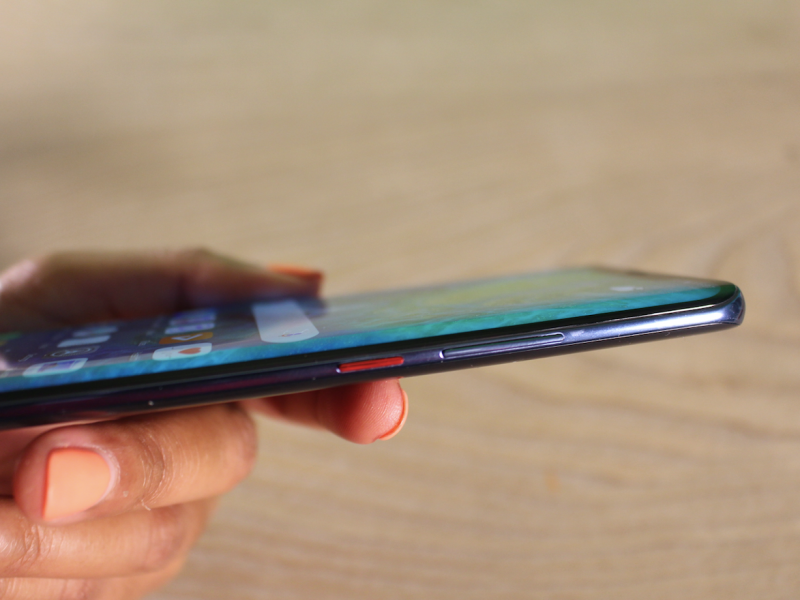
The phone feels good in the hand at 189g, with a glass back and slight texture that makes it a little less slippery. That massive quadrangle you see on the back is...
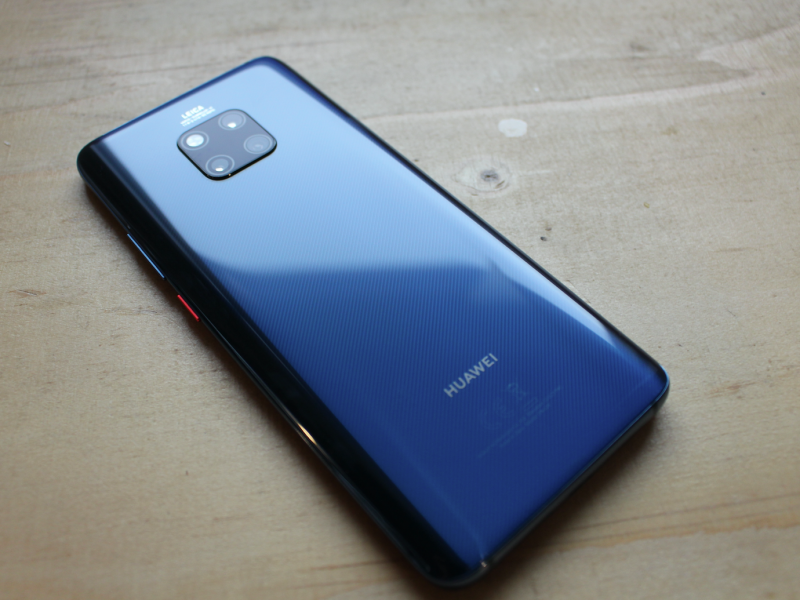
...a Leica triple-lens camera.
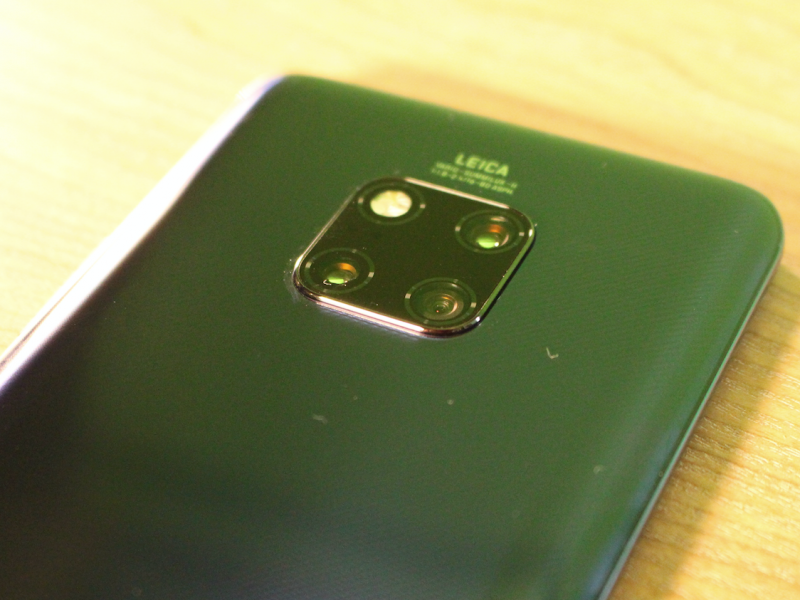
As ever with Huawei, the camera is the feature to get truly excited about. The firm's ongoing partnership with camera company Leica means it is out front of the competition when it comes to amazing phone photography.
The Mate 20 Pro's triple lens camera ditches the monochrome sensor on Huawei's P models, in favour of an ultra-wide sensor that lets you take bigger, wider shots like cityscapes or landscapes, and impressively detailed macro shots.
It takes beautiful, detailed macro shots thanks a new ultra-wide lens that lets you snap as close as 2.5cm. Check out this highly detailed shot we took of some flower buds.

And another close-up of a leaf (there isn't much nature around Business Insider's offices).

Selfies come out with amazing brightness and detail.

That's a 24-megapixel front-facing camera with a dual lens. It also comes with additional sensors for facial recognition, but more on that later.
And compare a normal cityscape shot...
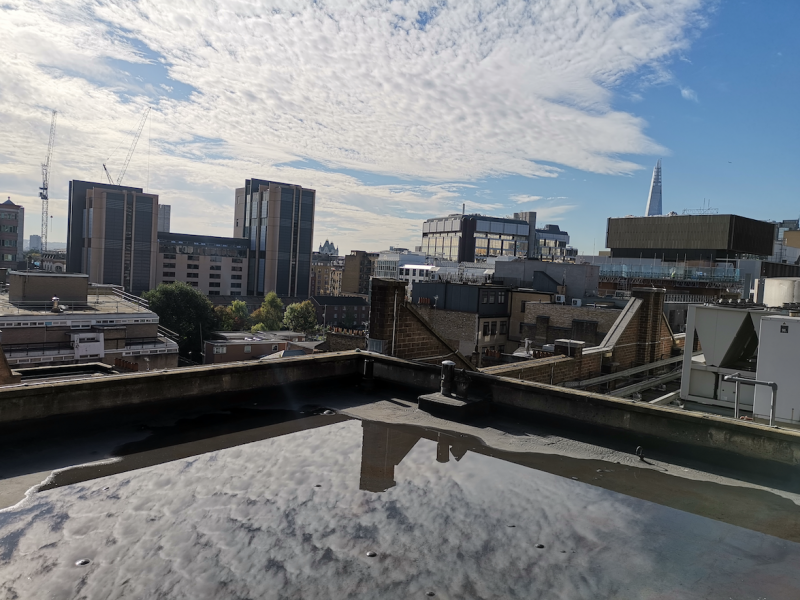
...to one taken in the same position but with the wide-angle setting on. The shot includes more scenery and looks more dramatic.

The camera's in-built AI software can recognise the scenario you're photographing and adjust the settings automatically for you.
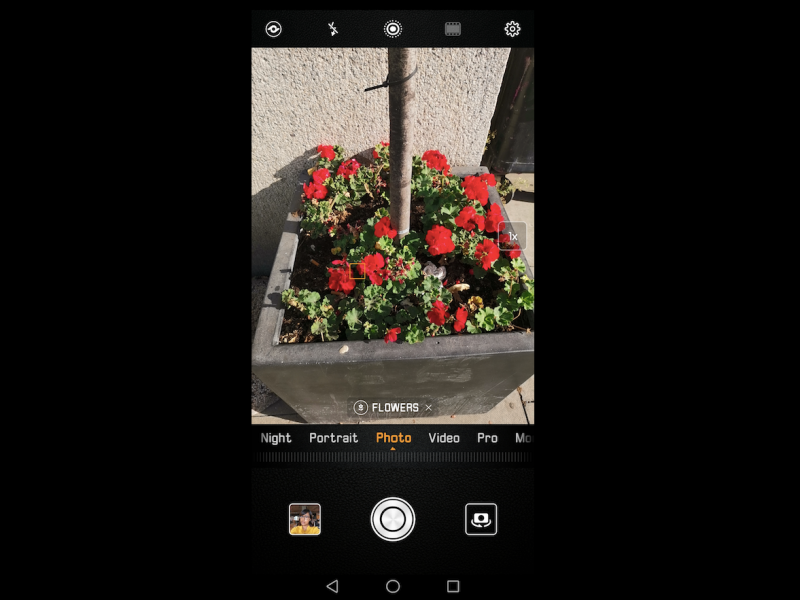
An additional augmented reality function can also identify objects in front of you. This seems cute but somewhat gimmicky.
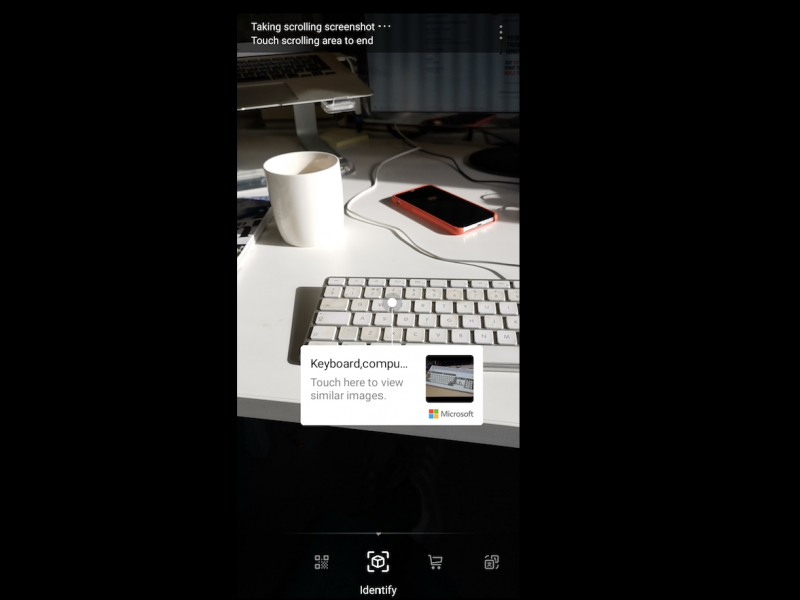
Huawei has aped Apple on another major feature — the ability to render your face as an emoji. This functionality is built into the camera too.
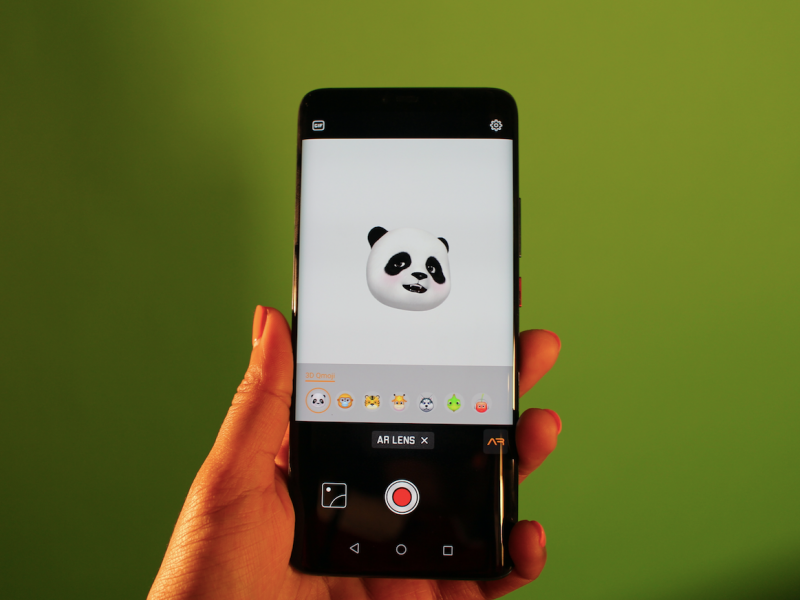
There's one super-cool feature that isn't available yet, and that's the ability to scan real-world objects then animate them on-screen.
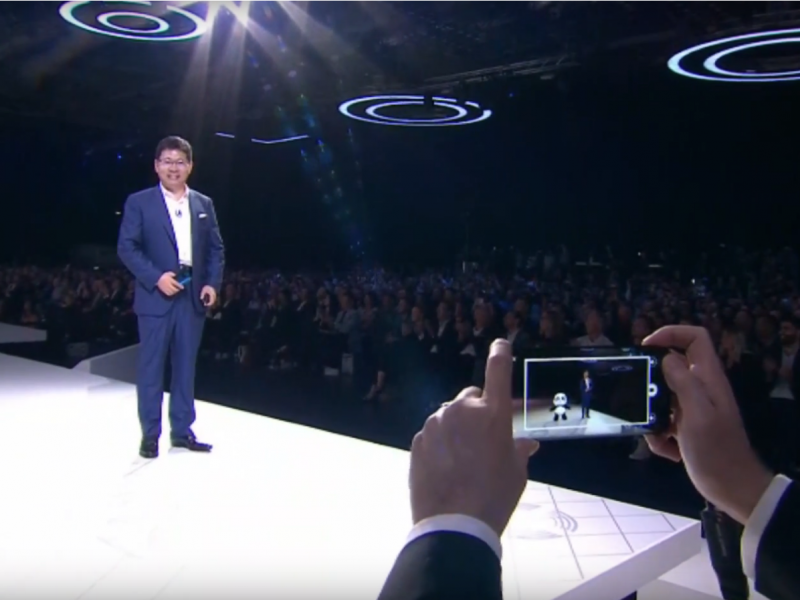
At the launch event for the Mate series, Huawei demonstrated 3D Live Object, an augmented reality feature that appeared to be built into the camera.
An exec scanned a real toy panda on-stage, which then rendered as a 3D object on the Mate 20 Pro's screen. The exec used various controls to make the panda wave, walk around, or stand next to a real-life person for a photo.
The feature wasn't available on our Mate 20 Pro, and a spokesman clarified that it would be available in an update from November 2018.
The Huawei Mate 20 Pro is expensive, but the camera and added functionality are amazing.
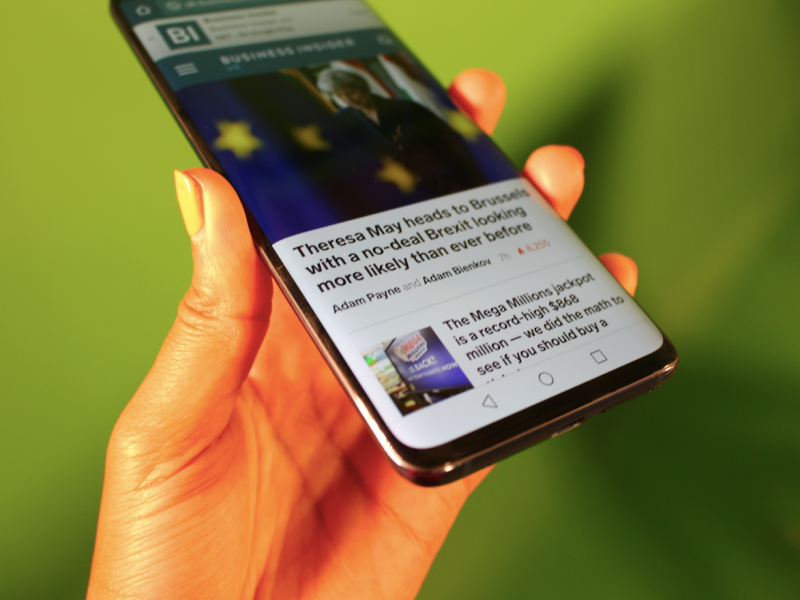
No one needs to spend close to €1,000 / $1,000 / £1,000 on a phone. There are so many excellent mid-range Android phones and earlier generation iPhones that offer everything you could want from a smartphone.
But if you are after a statement phone, the Mate 20 Pro comes out swinging as the premium choice for 2018. Huawei fans who already opted for the P20 Pro, which came out earlier this year, may well be disappointed that their flagship is already looking out of date.
For sure, some of the bells and whistles you'll be paying for look a little redundant. Why have both facial recognition and fingerprint unlock? What's the point of augmented reality object recognition?
For our part, the beautiful screen, the premium feel, and the powerful camera make it worth the money. And it's still at least a hundred pounds cheaper than a new iPhone.

